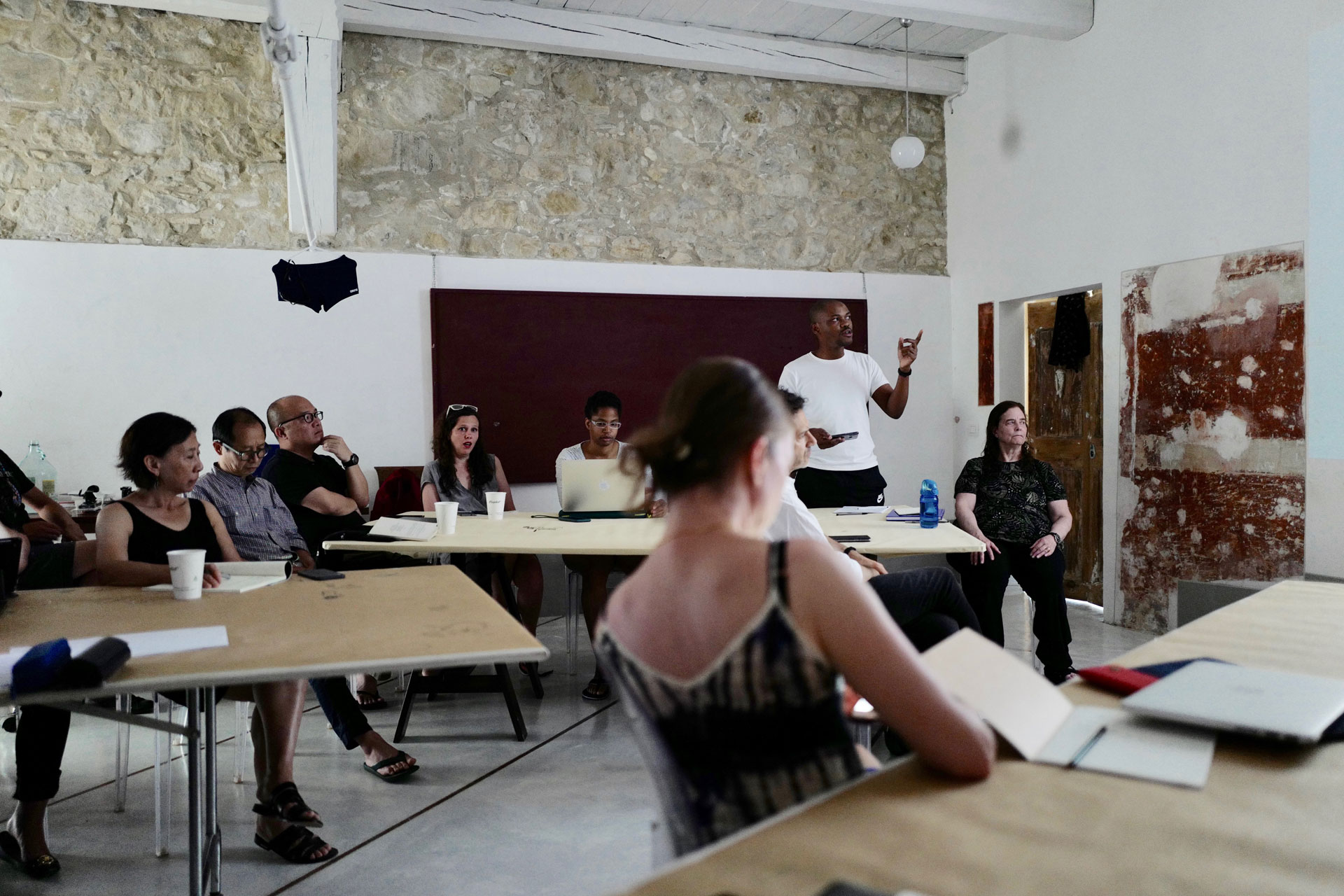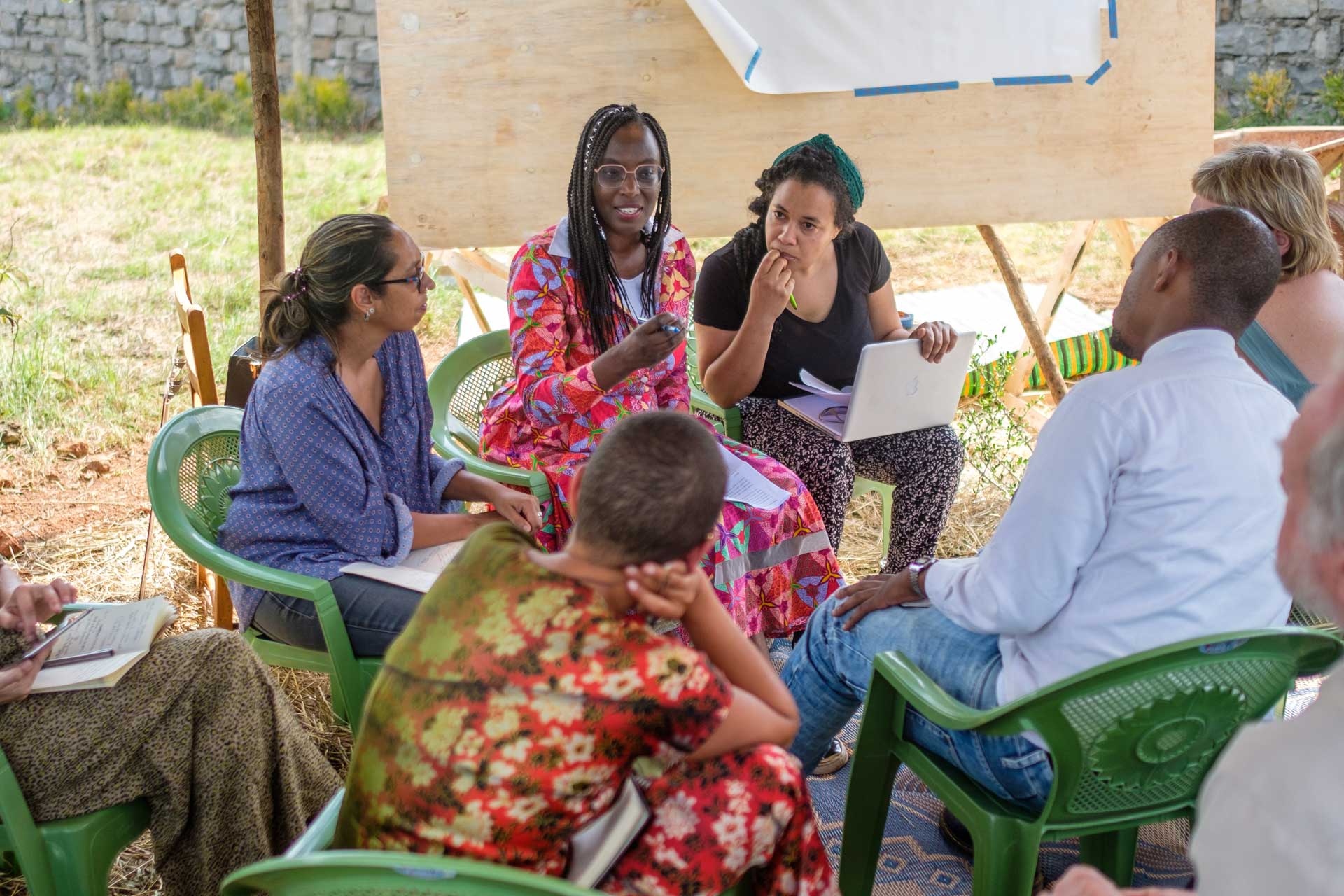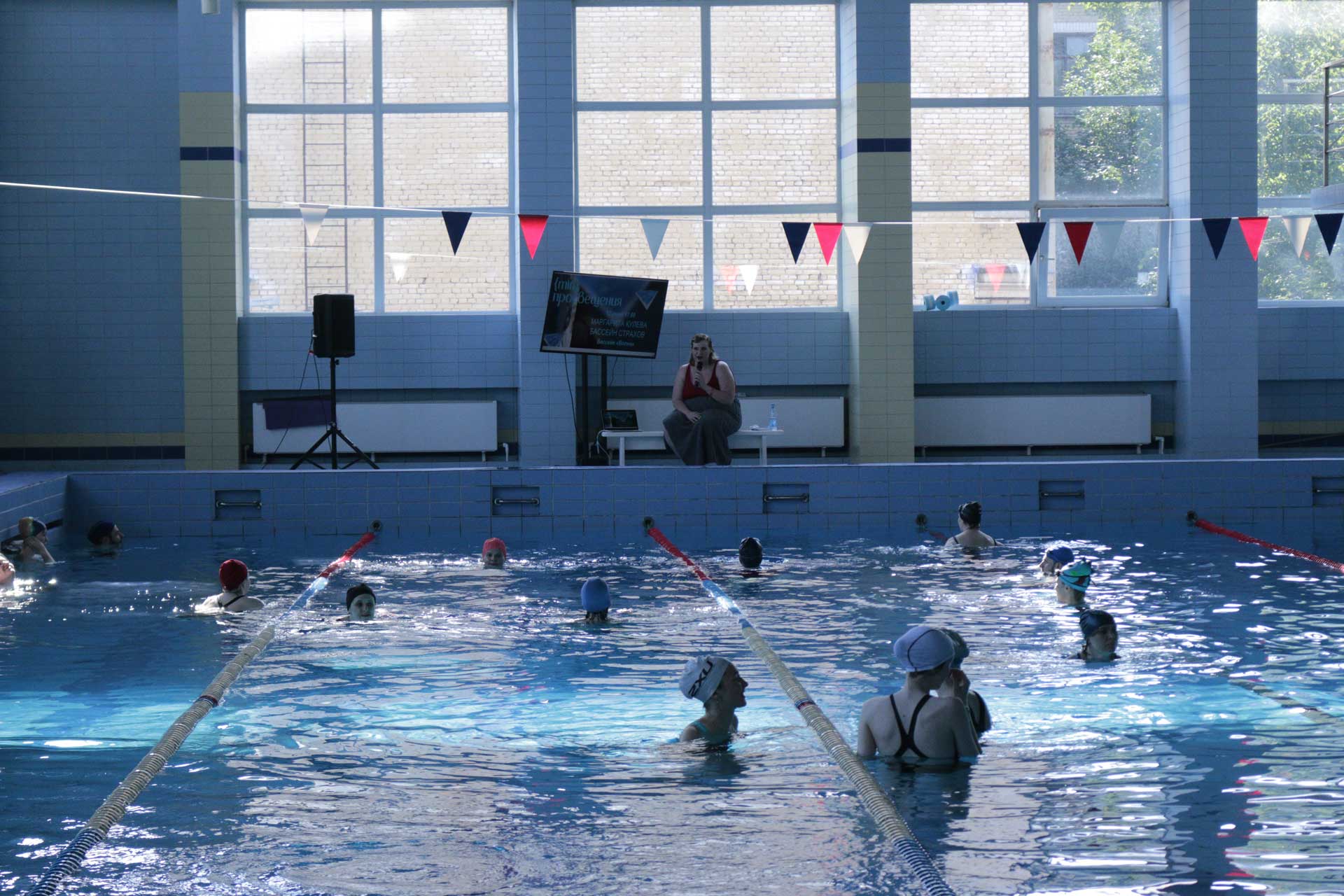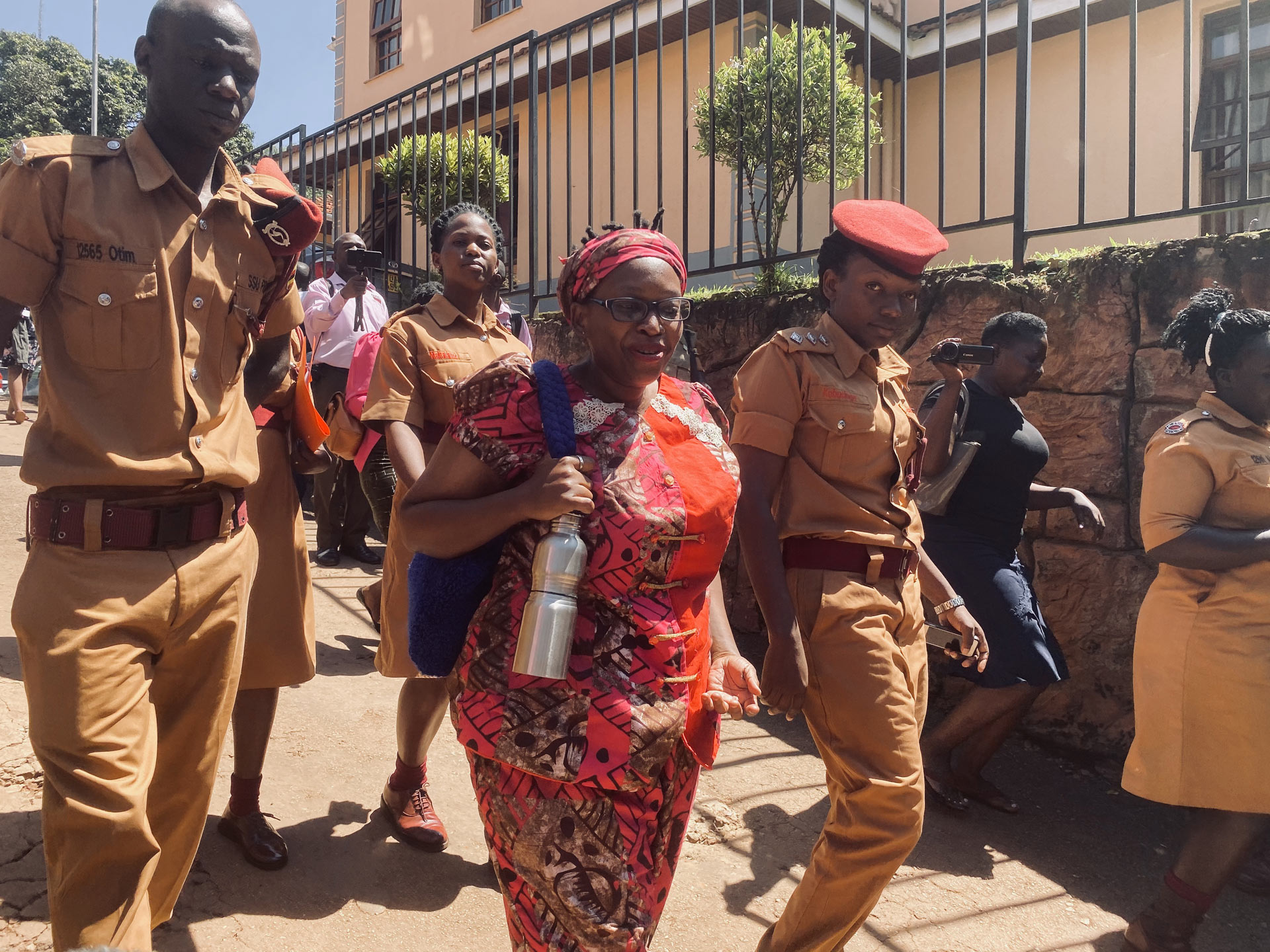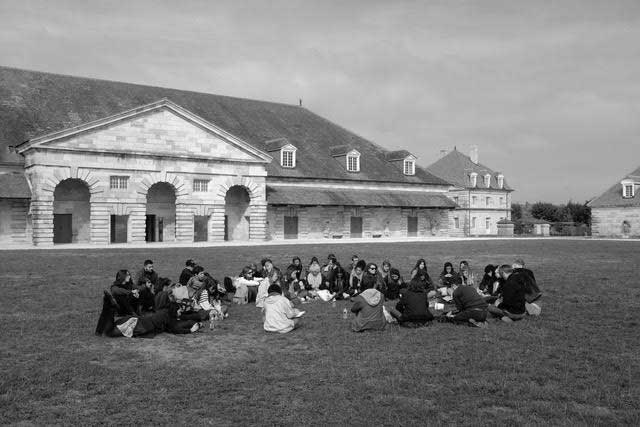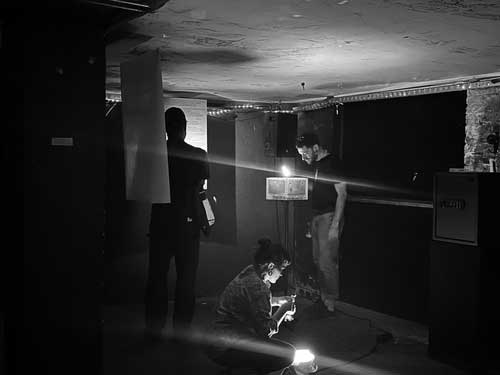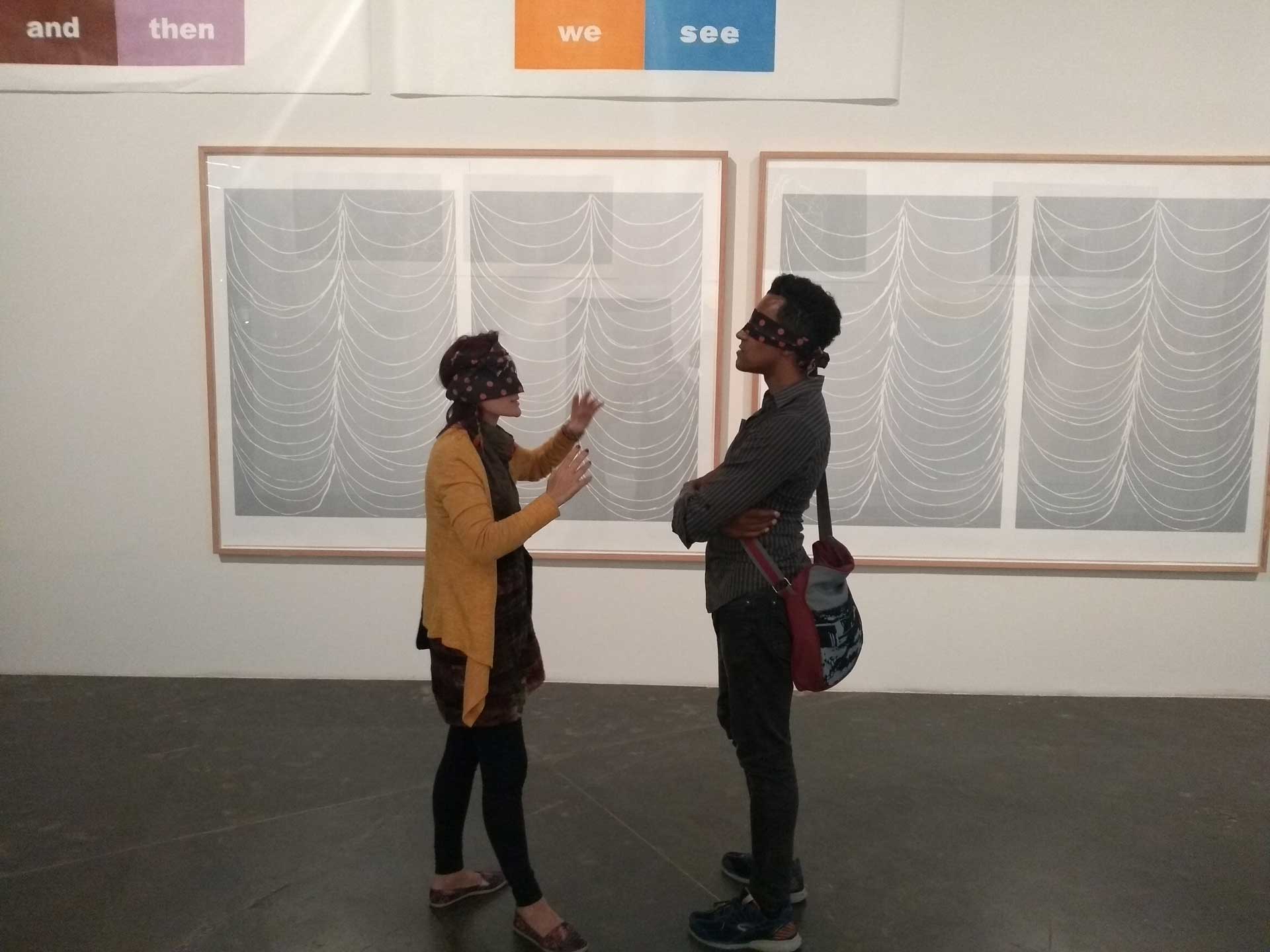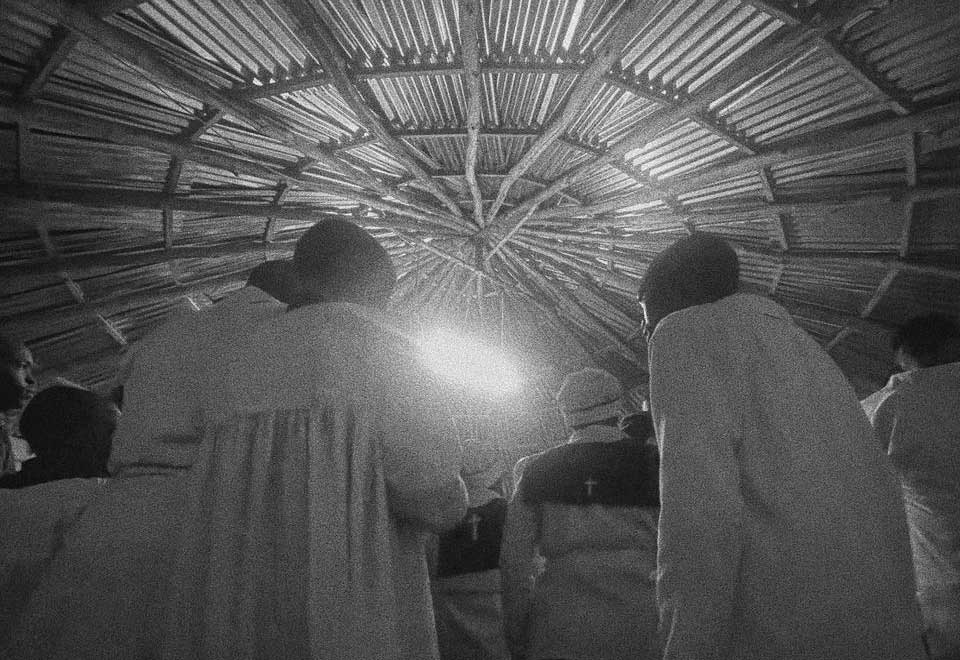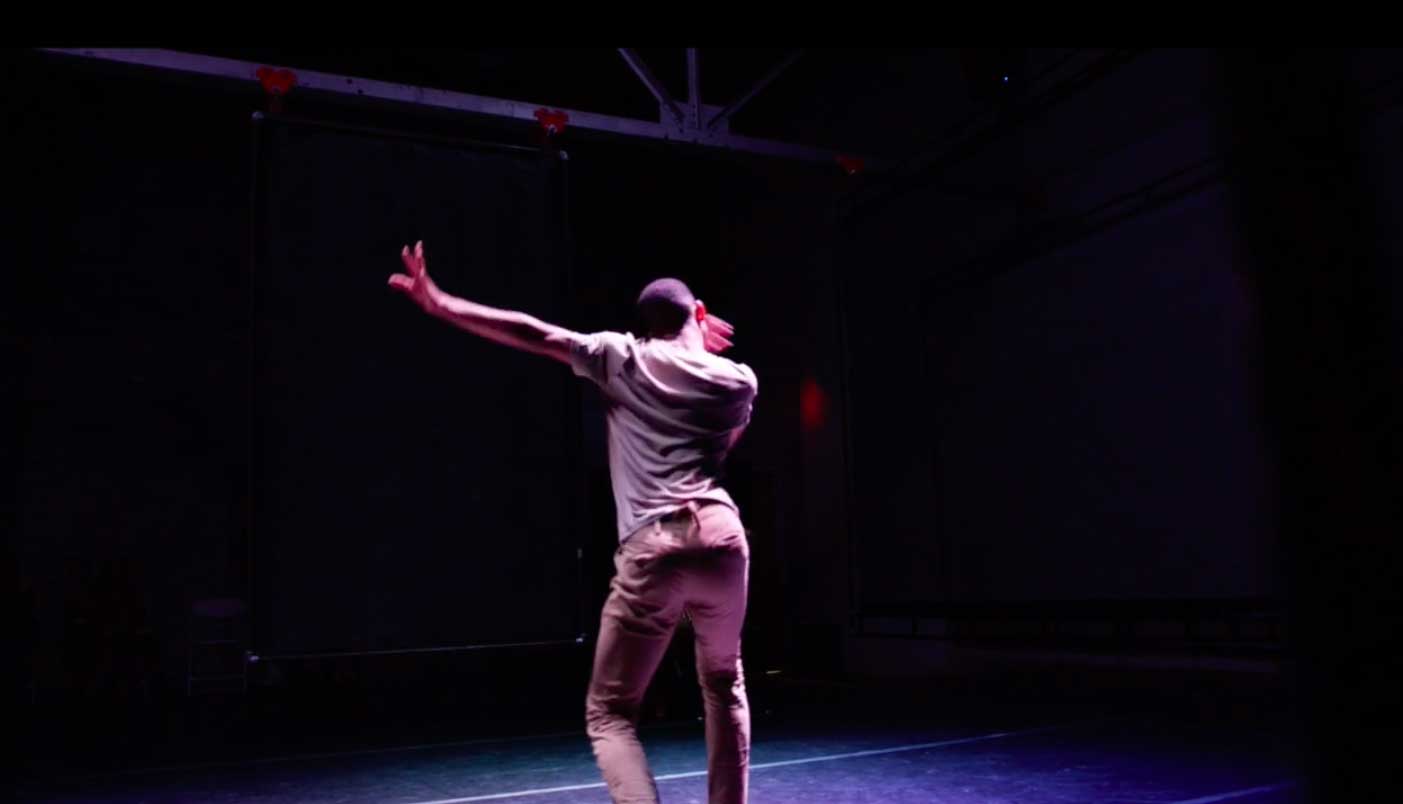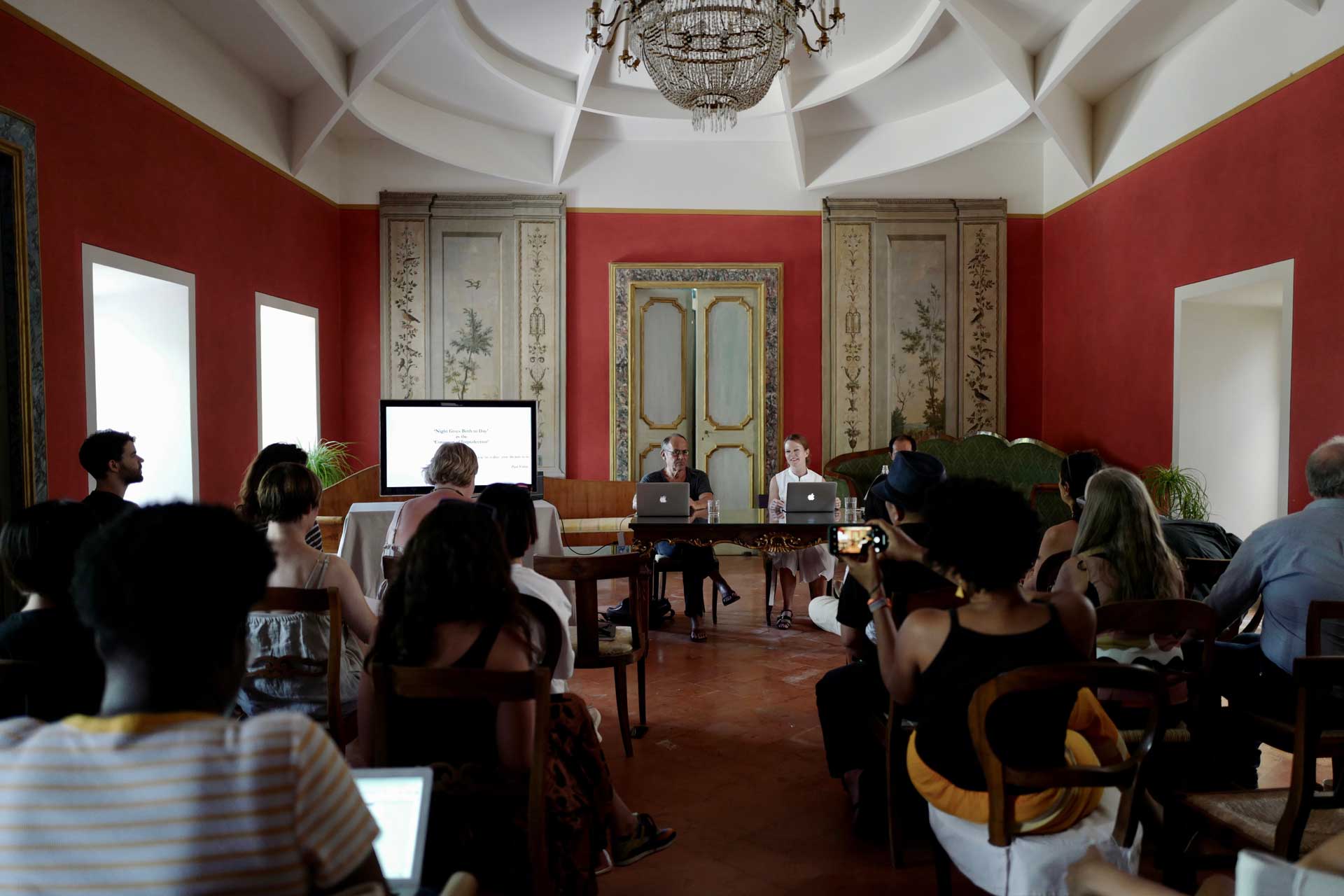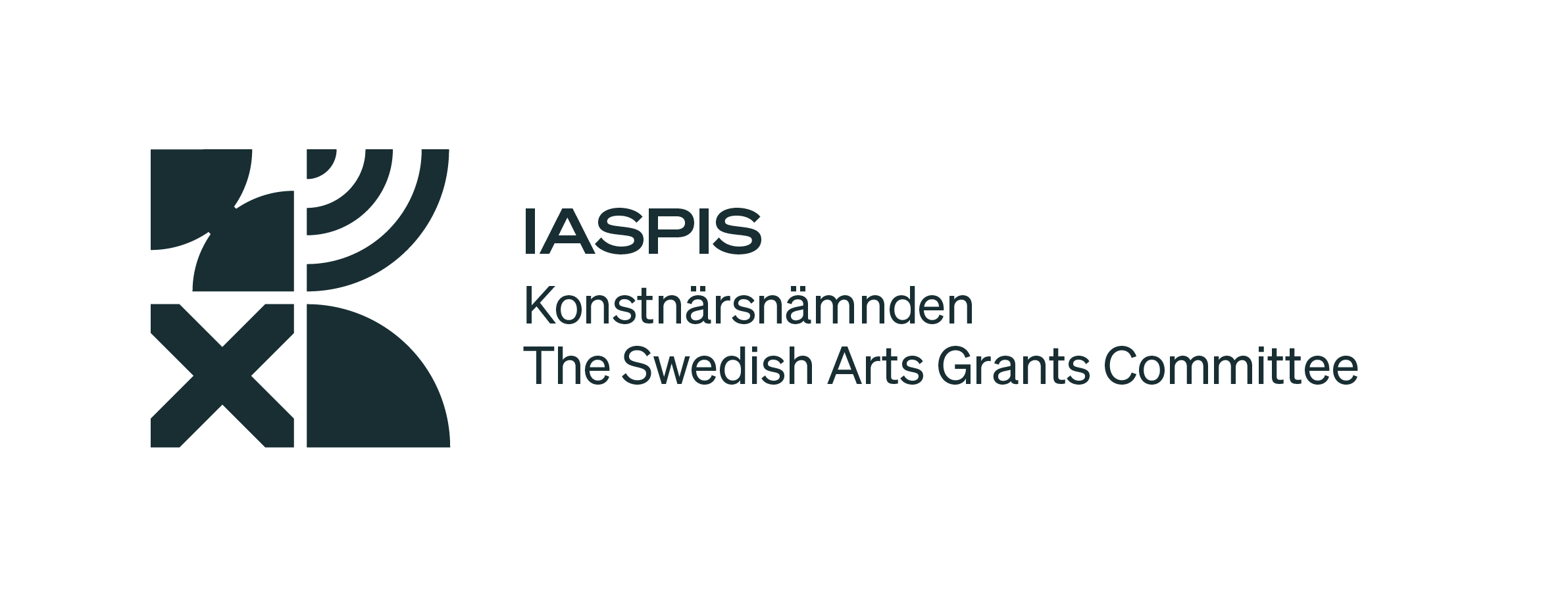Issue #5
Pluriversality
Dalida María Benfield and Christopher Bratton (Eds.), Yvonne Adhiambo Owuor, Margarita Kuleva, Stella Nyanzi, EM Mirembe, Joseph Kamaru aka KMRU, Katrine Dirckinck-Holmfeld, Isabelle Massu, Evelyn Eastmond, Bruno Moreschi, Gabriel Pereira, Sibonelo Gumede, Joanna Haigood, Bernard Stiegler
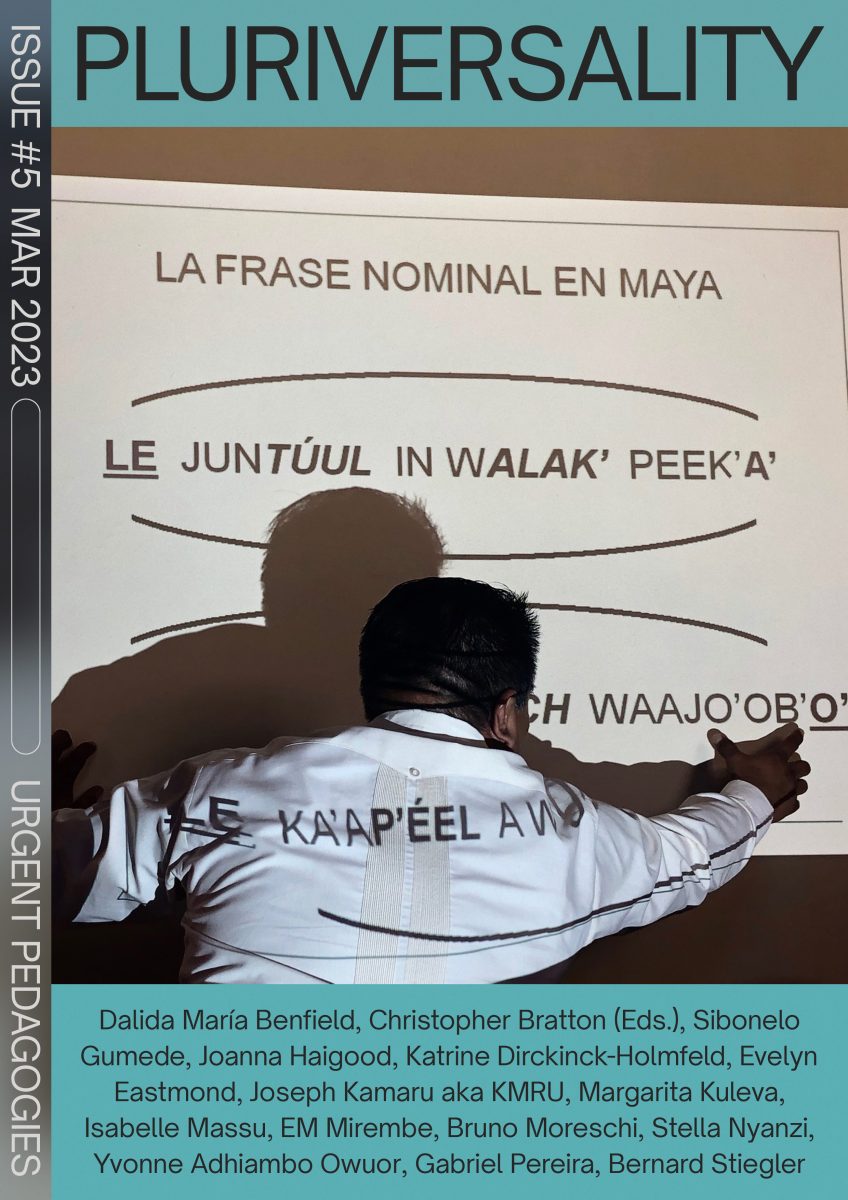
CATEGORY
Welcome to Issue #5: Pluriversality, guest edited by Dalida María Benfield and Christopher Bratton. The editors frame the contributions of the thinkers, artists and activists in Issue #5 as proposals towards liberatory pedagogies that iterate a “pluriverse”, the term offered by Arturo Escobar and others as a tool for de-centering Western modernity. Their diverse practices cross many worlds, multiple cosmologies and places, while emphasizing the dynamic interconnection between humans, cultures, and earth’s other beings.
Western modernity/coloniality fundamentally relies on an idea of universalism that generalizes highly specific values and practices as superior and desirable for everyone, everywhere. The key terms and forms of this universalism – individual, rights, democracy, and the market – appear so commonsensical as to be natural. As a further turn in the planetary re-spatialization of modernity/coloniality, neo-liberalism emphasizes the flattening of the time-spaces of the planet. It extends modernity/coloniality’s claims to universality by representing the world as wholly bounded and functioning according to market principles. Diverse and highly specific political and cultural forms are framed and made to serve a definition of the whole itself: The world appears as globally homogenous.
The conceptualization of spaces of exteriority that precede, elude, and resist this universalism, not incorporated by modernity and coloniality, but on its underside, provides a useful entry point for not only imagining, but also practicing and siting urgent pedagogies that are decolonial and emancipatory. As Enrique Dussel writes, “exteriority is a process that takes off, originates, and mobilizes itself from an “other” place (one “beyond” the “world” and modernity’s “Being”, one that maintains a certain exteriority…) than European and North American modernity” [1]. This offers us hope for radical trajectories of knowledge that produce other spaces of life outside of modernity/coloniality. Dussel also designates this as “trans”-modern thought, defined as “a multipolar twenty-first century world, where cultural difference is increasingly affirmed, beyond the homogenizing pretensions of the present capitalist globalization and its supposedly universal culture…” [2]. This “trans”-modernity is predicated, then, precisely on the possibility of affirming exteriority, “the underside of modernity,” the multiple time-spaces – the worlds – of the excluded.
Exteriorities are dispersed across spaces of institutionalized and informal learning and culture, including art worlds and global media flows. Indeed, in the case of the arts, what were once the primary spaces of education, production, exhibition, and distribution are reconfigured by neo-liberalization, and in some instances, augmented or supplanted by the space of digital media. While digital media is intertwined with diverse forms of cultural production across geographies, neo-liberalism capitalizes on this complexity through aesthetic standardization and the universalizing of mediatized cultural forms, reinforcing an ethics, and aesthetics, of domination. Across information communication technologies, including print, radio, film, television, and social media platforms, and other forms of schooling and cultural production, neo-liberal ideology infuses media aesthetics with coloniality: the primacy of white bodies over others; the individual over the collective; competition over cooperation; the inviolability of private property rather than collectivities; extractivism and exploitation rather than caring cultures; enclosing over commoning; and the representation of gendered, anti-LGBTQ+, and racialized inequality and violence as the consequence of individual and group pathologies that are unrelated to histories of colonialism and racial capitalism. These and other claims cohere as commonsensical, ubiquitous, and timeless.
The thinkers, artists and activists in Issue #5 posit liberatory pedagogies in the “underside of modernity” as iterations of a “pluriverse,” the term offered by Arturo Escobar as a tool for de-centering universality, “one of the pillars of Western modernity,” and instead positing “a shared project based on a multiplicity of worlds and ways of worlding life” [3]. Pluriversality includes the recognition of ways of being and doing that emphasize the dynamic interconnection of humans and the other living beings of the earth, as well as multiple cosmologies and places. Escobar underlines the praxical invitation of the pluriverse: “Living in accordance with the idea that there are multiple worlds, partially connected but radically different, entails an entirely different ethics of life, of being~doing~knowing” [4].
Through these conversations across texts, disciplines, periods, and geographies, we sketch a methodology that recognizes the plurality of worlds, different yet connected, and pedagogies that this, our shared planet, holds. With this, we also acknowledge the very limits of historical and contemporary archives regarding the complex histories of decolonial cultural practices. There are many stories to be told, and not all are in this issue, nor are they present in conventional archives. Still, with this convening and discussion of our community and practices, we hope to open onto many other horizons and locations of being, thinking, and doing, and contribute to expanding the decolonial archives of urgent pedagogies, with an awareness that our reference points and constellations are always in formation.
The territory of Issue #5 is assembled, in part, through the work of the Center for Arts, Design, and Social Research (CAD+SR), which, since 2017, has been mobilizing polycentric platforms for asking: What new possibilities emerge when education is detached from its institutionalized forms, its places, and situates itself in other worlds? What unfolds when education’s fundamental articulation – including its distinction between teacher and student – is upended? What spaces of exteriority and resistance are made, remade, and affirmed?
If teaching and learning are understood as integral to one another, that each person is a both a teacher and learner, always in relation, then the pedagogical encounter can occur anywhere and at any time, whether in interstitial and informal spaces, much abbreviated or much extended. The contributions to Issue #5 represent a mix of times and spaces; tempos and palettes; scales and duration; and discourses, accents, and idioms. It features work by artists, choreographers, composers, writers, philosophers, and anthropologists, all of whom address the multiplicity of worlds and their fundamental role in creating trans-local spaces of social connection and reciprocity, crucial for collective action. They challenge the many truth claims of universalism and instead propose “a shared project based on a multiplicity of worlds and ways of worlding life” [5].
It is exactly the history of Western modernity, its parochial universalism bound up with the long unfolding of Euro/American colonialism and capitalism, that Yvonne Adhiambo Owour recounts by way of an introduction: the 1890 massacre and razing of Witu, the center of Swahili scholarship and learning in East Africa. Her piece, “Remarks for an Opening,” was written for the De/Archive East Africa research residency organized by CAD+SR with Untethered Magic in Ongata Rongai, Kenya in 2020. The burning of the archives and the murder of its keepers was by then a familiar practice of empire, the essential cultural erasure that made way for racialized ideas of dominance. But as she recalls, other archives survived in the very sea and land, in the navigational practices and mnemonic devices – the poetry – of those who came before and endure still, a living residue of the multiplicity of worlds.
On April 5, 2021, Russian President Vladimir Putin signed legislation that brought “educational activities” under direct state control. These activities are vaguely defined as occurring outside of formal schools with the intention of “disseminating knowledge”. Thus anyone defined by state officials as an “educator” falls under the law and becomes subject to prohibition [6]. In response, Margarita Kuleva asks through her project, “Weeds of Enlightenment,” what possibilities emerge when education is detached from its institutionalized forms, from the state and schooling, its spaces and procedures? What grows when education’s fundamental articulation — its distinction between teacher and student — is upended? What spaces of everyday resistance are made and remade? If teaching and learning are understood as integral to one another, that every person is both a teacher and learner, always in relation, then the pedagogical encounter can occur anywhere and at any time, in interstitial and informal spaces, much abbreviated or much extended.
How to speak when expression is foreclosed, when the threads of exchange in a place such as Uganda – British, colonial, Ganda, American – are so tightly knit that they already anticipate resistance? Address them directly in order to discard them. Rudely throw them out, because rudeness refuses to accept the silence imposed by a decorum legislated by power and exposes it as one of the many forms of corruption by which that power endures. As Stella Nyanzi states:
I think that in the repressive situation of Uganda, where I write from, polite talk has been domesticated, has been bashed, smashed, conquered, it is powerless. It doesn’t communicate with the oppressors. But vaginas and buttocks and penises and vulgarity, whatever it is, whether it’s written or enacted, communicate much better [7].
Words and bodies that elicit the long historical resonances of African women’s nude protests, the baring of breasts and buttocks, and in poetry, writing through the so-called obscenities of those bodies to challenge the true obscenities of authoritarian impunity that characterize the neo-liberal present. In this Instagram Live conversation between EM Mirembe and Nyanzi, which we entitle “Naked Protest,” they delve deeply into the embodied, dissident creativities proposed and enacted by anti-capitalist, queer, feminist, and anti-governmental futures.
With Isabelle Massu and Katrine Dirckinck-Holmfeld, Dalida María Benfield engages in a roundtable, ”Inside/Outside/Across/Between: Crossing Thresholds, Academically and Otherwise,” regarding the perils of the practices of liberatory pedagogies in two art academies in Europe. The feminist and decolonial research, artistic practices, and pedagogies of each meet the icy chill of patriarchy and entrenched colonialities. Their testimonials about testing the limits of their academies reveal the urgency of the epistemic, political, and pedagogical work to be done to create spaces of relative freedom from oppressive academic legacies, curricular architectures, and practices.
Joseph Kamaru aka KMRU questions the colonial archive upon which European/Occidental thinking, schooling, and listening rely. Kamaru’s project, Temporary Stored, liberates the sonic beings of ancestors. In his research, he situates listening practices, and in turn, the production of sound, as having the potential to revitalize subjectivities, against the objectification and racialization enacted by sonic colonialities. Kamaru’s liberation of sounds from the colonial archive includes first, accessing them, which is no small feat given their institutional enclosure; then, a close listening to them; and finally, re-mixing them with field recordings and synthesizers. This re-encantation honors his, and our collective, ancestralities.
Bruno Moreschi conducted a series of inter-related investigations under the title, Another 33rd Biennial, for his contribution to the 33rd São Paulo Biennial. Intending to create a platform for interrogating the Biennial as a signifying and social system, he carried out numerous actions that dwelled in its liminalities and illuminated its borders. Amongst other interventions, he interviewed the cleaning, installation, and security staff of the Biennial about their interpretations of the artwork, and used AI to produce new “readings” of the exhibition, including the architecture. Two related actions involved the collaborative workshops, “São Paulo-Boston,” which occurred in Cambridge, Massachusetts, US; and “Vislumbres Potencialmente Libertadores no Sistema da 33ª Bienal de São Paulo,” at the Itaú Cultural, São Paulo, Brazil, 2018. In the essays included here, members of the collaborative group that carried out these workshops – Dalida María Benfield, Christopher Bratton, Evelyn Eastmond, and Gabriel Pereira, along with Moreschi – reflect on the trans-local learning process. The workshops framed and instigated collective transcriptions, translations, and mutations of the artworks and architectures of the 33rd Biennial while inscribing new relations of teaching and learning.
The collective project of autonomous education can be made urgent by the imposed limits on knowing made by academic curriculum and the archives of knowledge upon which they rely. Turning outwards and away from these limits, to streets, dwellings, villages, farms, markets, forests, fields, waters; as well as to sound, music, diverse inscriptions, and stories, across spaces and scales of human and other-than-human life and being, what other ways of knowing might we find? In Sibonelo Gumede’s contribution, a route of such knowledge seeking is sketched. It follows multiple and intertwined spatial, affective, and interdependent threads through Johannesburg, in a collective endeavor to forge a musical curriculum as a way of knowing and producing blackness.
In the context of the Center for Arts, Design, and Social Research, the global COVID-19 pandemic produced a series of communal experiments in digital pedagogical practices. This included the co-design of an online Virtual Reality environment, the CAD+SR “Kitchen” [8]. The community also engaged in numerous online lectures, workshops, performances, and created digital interventions and artworks during our annual Research Residencies, titled “Commonplaces and Entanglements,” following Édouard Glissant. Research Fellow Joanna Haigood, a choreographer, produced a video intervention as her contribution to the residency in 2018. The video, Black Joy, like Joanna’s own aerial choreography, zooms out for a meta-versal perspective on global Black cultures and the planetary joy they bestow. As she teaches us in the video, the multiplicity of forms that this joy inhabits are reflections of the conditions of survival and resilience made necessary by the fiction of race and the fact of racism. Haigood produces a sense of relation that echoes Glissant: “Our boats are open, and we sail for everyone” [9].
De Rerum Natura (On the Nature of Things), a residential workshop co-organized in 2019 by Hou Hanru and Evelyne Jouanno, with Dalida María Benfield and Christopher Bratton, viewed art as a necessary, critical and independent counterpoint to the reality and philosophy of accelerated technological development. We examined the interrelation of technics, humans and “nature,” and explored the emergence of “cosmopolitics” and “cosmotechnics” philosophies as a necessary dialogue – with presentations by Bernard Stiegler and Yuk Hui – and reconciliation between the planet and techne in the context of the “Anthropocene” and beyond. We also investigated the transformations and future of our understandings of life beyond the planet, with Troy Therrien, as well rural and exurban space, including the question of the avant-garde. We end with a beginning, an actualizing of what is already felt, an articulation of the shift in our understanding of where we find ourselves or more urgently, where we might go. In “Night Gives Birth to Day as the Conquest of Imperfection,” the text he presented on the occasion of De Rerum Natura, philosopher Bernard Stiegler theorizes the end of the Anthropocene and the processes through which new forms are emerging. Key to these are the role of artist and philosopher, who together are tasked as the gardeners of new “biospheric localities,” grown from the hummus of ideas and creolized from “the excited commotion of diversity” [10].
Contents
Remarks for an opening: January 18, 2020
Yvonne Adhiambo Owuor
Weeds of enlightenment
Margarita Kuleva
Naked Protest
Stella Nyanzi in conversation with EM Mirembe
Inside/outside/across/between: Crossing thresholds, academically and otherwise
Katrine Dirckinck-Holmfeld and Isabelle Massu, convened by Dalida María Benfield
Temporary Stored
Joseph Kamaru aka KMRU
Potentially liberatory glimpses of the 33rd São Paulo Biennial system
Dalida María Benfield, Christopher Bratton, Evelyn Eastmond, Bruno Moreschi, Gabriel Pereira
Ushuni wethu lo!
Sibonelo Gumede
Black Joy
Joanna Haigood
‘Night Gives Birth to Day’ as the ‘Conquest of Imperfection’
Bernard Stiegler
1.
Dussel, Enrique and Alessandro Fornazzari. “World-System and “Trans”-Modernity.” In Nepantla: Views from South, vol. 3 no 2, 2002, pp. 221-244. Project MUSE muse.jhu.edu/article/23955, 234.
2.
ibid, 236.
3.
Escobar, Arturo. Pluriversal Politics: The Real and the Possible. Duke University Press, 2020, 26.
4.
ibid, 27.
5.
ibid, 26.
6.
S. Nyanzi and E. Mirembe, ‘“I was anticipating that it would be banned before we even got it out” – Stella Nyanzi chats to Esther See https://meduza.io/en/news/2021/04/05/putin-signs-legislation-bringing-educational-activities-under-state-control
7.
S. Nyanzi and E. Mirembe, ‘“I was anticipating that it would be banned before we even got it out” – Stella Nyanzi chats to Esther Mirembe about her poetry collection No Roses from My Mouth.” In Johannesburg Review of Books, July 3, 2020. Access at https://johannesburgreviewofbooks.com/2020/07/03/i-was-anticipating-that-it-
would-be-banned-before-we-even-got-it-out-stella-nyanzi-chats-to-esther-mirembe-about-her-prison-poet-ry-collection-no-roses-from-my-mouth
8.
For further discussion, see Benfield, D.M., et al. “Impossible Spaces and Other Embodiments: Co-constructing Virtual Realities.” In Art as Social Practice: Technologies for Social Change, xtine burrough and Judith Walgren, eds. New York and London: Routledge, 2022.
9.
Glissant, É. (1997). Poetics of Relation. Betsy Wing, trans. Ann Arbor, MI: The University of Michigan Press.
10.
ibid.
are artists and researchers living between Helsinki and Boston. Since 2017, they are co-founders of the Center for Arts, Design, and Social Research, a poly-centric laboratory for research and practice focused on emancipatory and decolonial pedagogies. With partners in Brazil, Denmark, Finland, Italy, Kenya, Mexico, South Africa, and the UK; and a group of Senior Researchers and Research Fellows, they have co-organized research convenings, exhibitions, workshops, and publications. Benfield works on decolonial aesthetics and has an MFA in moving image practices from the School of the Art Institute of Chicago, and a Ph.D. in Comparative Ethnic Studies with Designated Emphasis in Women, Gender, and Sexuality, University of California-Berkeley. Bratton is an artist, filmmaker, and education activist.
burst into the literary limelight in 2003 when she won the Caine Prize for African Writing. Her writing, both fiction and nonfiction, captivates readers with its representation of African life in resonant and complex ways. She harnesses the lyrical power of storytelling through a poetic language that doesn’t just reflect reality but also sees into the deep dark undercurrents of violence in history and collective life. Whether in a novel like Dust (2014), set against the 2007 post-election violence in Kenya or in a short story like “Weight of Whispers,” which explores the Rwandan genocide, Owuor invites readers to participate in a shared experience of trauma as a private experience and a collective reckoning. Her most recent work of fiction, The Dragonfly Sea (2019), is a coming-of-age story that explores aspects of an East African sea imagination in a time of China’s return to its milieu. Yvonne is also active in the environmental and conservation sector.
Dr., is an artist, curator, and researcher. She is based in New York and works as a postdoc at the NYU Jordan Center. Additionally, she collaborates with TAEX, a London based platform for digital art as a senior curator. She is interested in exploring social inequalities in cultural and knowledge production. In her research and art projects she mainly uses ethnography and performance as methods. In particular, her PhD was devoted to the ‘behind the scenes’ of cultural institutions to give greater visibility to the invisible workers of culture. In the last two years, Margarita has been developing performative lectures as an approach to deconstructing dominant forms of hierarchized production of knowledge. She was a CAD+SR Research Fellow, 2019-2020.
Dr., is an award-winning medical anthropologist with specialization in sexual and reproductive health, sexual rights, and human sexualities in Uganda and The Gambia. She self-identifies as a radical queer feminist scholar, social justice activist, human rights defender, non-violent protester, poet, Facebooker, opposition politician belonging to the Forum for Democratic Change (FDC), former aspirant for Kampala Woman Member of Parliament (2020–21), an ex-prisoner from Luzira Women’s Maximum-Security Prison, and mother of three teenagers. Her first poetry anthology, No Roses From My Mouth: Poems From Prison, was written while imprisoned in Uganda before she was acquitted after 15 months. She is a 2022 recipient of the Writers-in-Exile Programme of the German PEN Center, and a 2022 CAD+SR Faculty Fellow.
Ph.D., is a visual artist, independent researcher and educator and a member of the Uncertain Archives research collective (University of Copenhagen). Her work explores “reparative critical practices” as collaborative, audio-visual practices that explore the debris of broken histories. Current artistic work and research traverse the entangled colonial archives between the United States Virgin Islands, Ghana, Greenland, India, and Denmark, often presented in video installations, performative presentations, and publications. She was the head of the Institute for Art, Writing and Research at the Royal Danish Academy of Fine Arts, where she was also a postdoctoral researcher. She is the co-founder of Sorte Firkant bar & cultural venue in Copenhagen and the newly founded artists’ network Reparative Encounters.
is an artist and educator currently teaching visual culture at the Institut Supérieur des Beaux Arts de Besançon in France. She has taught at the Parsons School of Art in Paris, the San Francisco Art Institute and in several non-academic contexts; with feminists associations, and other cultural and social venues, in France and abroad. Since 2018, she focuses on developing critical pedagogies in art schools. She co-organized in 2020, the “Teaching to Transgress Toolbox,” a European research program for artists, researchers, students, and educators to develop tools to foster inclusive pedagogies in art institutions. She is currently on the CAD+SR Advisory Board.
is a Nairobi-born, Berlin-based sound artist whose work is grounded on the discourses of field recording, noise, and sound art. His work posits expanded listening cultures of sonic thought and sound practices; propositions to consider and reflect on auditory cultures beyond the norms through compositions, installations, and performances. He has earned international acclaim for his ‘ambient’ recordings, including his album Peel, released on Editions Mego, sweeping 2020 end year lists from Pitchfork, RA, DJ Mag, Bandcamp to Boomkat, and many more. He has also earned international acclaim for his performances in far-flung locales as well as his most recent release, Temporary Stored. KMRU presents a monthly show on Internet Public Radio, guests on NTS and Rinse FM, organizes workshops for the Nairobi Ableton User group, is a core member of Black Bandcamp. He was a CAD+SR Research Fellow, 2020-2022.
is a Product Design Prototyper at Meta developing strategy and exploring interfaces and applications for Virtual Reality (VR), Mixed Realtiy (MR) and Augmented Reality (AR) headsets. Before that she worked as a Senior Design Researcher in the Office of the CTO at Microsoft helping drive company alignment and evaluating product market fit for VR and AR. She has previously worked as an artist, researcher and professor at the Rhode Island School of Design and the MIT Media Lab and has held residencies at the Banff Centre for Arts and Creativity, the Center for Arts, Design, and Social Research and at the Gushul Studio at the University of Lethbridge.
is a researcher, visual artist, and post-doctoral fellow at the Faculty of Architecture and Urbanism at the University of São Paulo (FAUUSP). He holds a Ph.D. of Arts at the State University of Campinas (Unicamp), with an exchange at the University of Arts of Helsinki (Kuva Art Academy). He is currently a Senior Researcher at the Center for Arts, Design, and Social Research (CAD+SR) and member of the Decay without mourning project: future thinking heritage practices.
is an Independent Research Fund Denmark International Postdoc, based as a Visiting Fellow at the London School of Economics and Political Science (UK). His research focuses on critical studies of data, algorithms, and digital infrastructures, particularly those of computer vision and algorithmic surveillance. Projects with Gabriel have been exhibited in venues such as the 33rd Sao Paulo Art Biennial, the Van Abbemuseum, IDFA DocLab, and Itaú Cultural. He was a CAD+SR Research Fellow, 2017-2019, and Researcher in Residence, 2020-2021.
is an urbanist and cultural worker based in Cape Town, South Africa. In urban environments, Gumede is interested in the intersection of city-making processes and citizenship, as well as exploring the limits of contemporary urbanism discourse. Gumede holds a Master’s degree in Development Studies from the University of Kwa-Zulu Natal and is currently pursuing an MPhil in Southern Urbanism at the African Centre for Cities at the University of Cape Town. Gumede was the Vice President of the Kwa-Zulu Natal Society of Arts, mainly serving on the curatorial and education committee. He was a 2021 Research Fellow at the Centre for Arts, Design and Social Research (CAD+SR) and a Black Planetary Futures collective member. Gumede also has experience working as a researcher in institutional development projects that involve strategic and operational planning, project management, monitoring and evaluation as well as partnership management for municipalities.
is an artist who works in installation, time-based public art, and performance. She co-founded Zaccho Dance Theatre in San Francisco, CA, US, in 1980. Haigood has been creating work that uses natural, architectural, and cultural environments as points of departure for movement exploration and narrative. Her stages have included grain terminals, a clock tower, the pope’s palace, military forts, and a mile of urban neighborhood streets in the South Bronx. Her work has been commissioned by many arts institutions, including Dancing in the Streets, Jacob’s Pillow Dance Festival, McColl Center, Walker Arts Center, the Exploratorium Museum, the National Black Arts Festival, Equal Justice Society, and the Festival d’Avignon. She has also been honored with the Guggenheim Fellowship, the Herb Alpert Award in the Arts, the United States Artist Fellowship, and a New York Bessie Award. Haigood is also a recipient of the Doris Duke Artist Award and was a CAD+SR Research Fellow, 2020-2022.
(1952-2020) was a philosopher and director of IRI at the Georges Pompidou Center in Paris, a Professorial Fellow at the Centre for Cultural Studies at Goldsmith College in London, and a Professor at the University of Technology of Compiègne, where he taught philosophy. Before taking up the post at the Pompidou Center, he was Program Director at the International College of Philosophy, Deputy Director General of the Institut National de l’Audiovisuel, then Director General at the Institut de Recherche et Coordination Acoustique/Musique (IRCAM). Stiegler published widely on philosophy, technology, digitization, capitalism, and consumer culture. Among his writings, his three volumes of La Technique et Le Temps (English Translation: Technics and Time), Acting Out, translated by David Barison, Daniel Ross, and Patrick Crogan (Stanford University Press, 2009), two volumes of De La Misère Symbolique, three volumes of Mécréance et Discrédit and two volumes of Constituer l’Europe are particularly well known. He was a CAD+SR Faculty Fellow in 2019.
